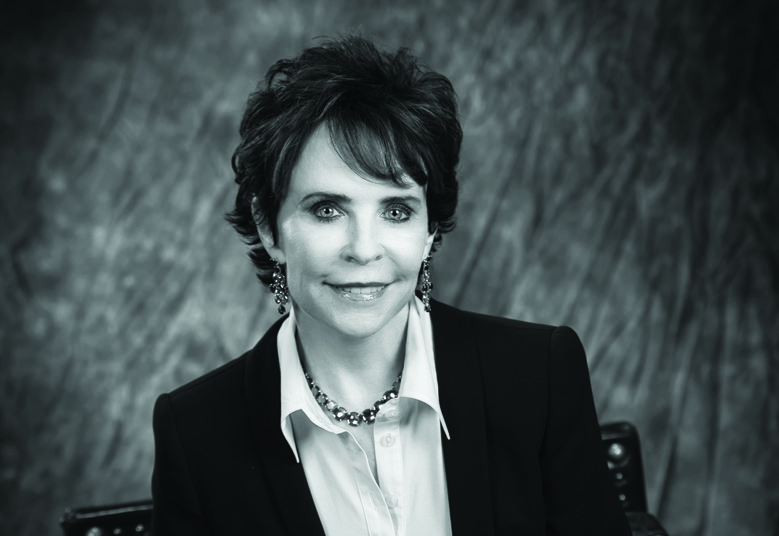As climate change threatens the world’s eco-systems, conservationist and philanthropist Julie Ann Wrigley is on a mission.
Turning to higher education for solutions, Wrigley has made a new $25 million philanthropic investment in Arizona State University’s Global Institute of Sustainability, bringing her total commitment to sustainability research and programs at ASU to $50 million. Her most recent support will advance research on how current human activity impacts the Earth’s capacity to sustain populations of all species.
In recognition of her leadership, ASU is renaming the institute: the Julie Ann Wrigley Global Institute of Sustainability.
“ASU and Julie Wrigley have been dedicated partners in building the nation’s most comprehensive program in sustainability teaching, learning and discovery, and we could not have done it without her generous investment and leadership,” says ASU President Michael M. Crow, a member of the steering committee of the American College & University President’s Climate Commitment.
“She recognized and trusted that our university is one of the rare places that can tackle issues of sustainability across disciplines and find real-world solutions. Julie shares our commitment to making the world a better place for future generations and, through her partnership with us, is helping to invent that future.”
Wrigley’s commitments have helped to transform ASU — a university known for innovation and risk-taking — into a global center of sustainability education and discovery. For example:
- The first comprehensive degree program in the country. ASU School of Sustainability alumni are employed in fields such as government, business, education, nonprofits and NGOs, recycling and waste, energy and environmental design, food and farming, finance and more.
- Use-inspired research, including work done through ASU LightWorks, which has led to the development of technologies such as high-power, low-cost, rechargeable zinc-air batteries for renewable energy storage; an energy-efficient electrochemical process to capture and store carbon dioxide from power plant emissions; ultra-thin silicon solar cells designed to increase the amount of electricity that can be produced through direct conversion of sunlight; and developing microbial systems that restore water purity and generate usable energy by capturing waste products from water.
- Across four campuses, ASU invested $52 million in sustainability projects in fiscal year 2013, including energy efficiency, dining, transportation, renewable energy and other projects. The university’s waste sent to landfill is down 24 percent from 2007 despite the university adding 29 percent in space and 33 percent in enrollment through 2013. Greenhouse gas emissions are down 15 percent from 2007; and ASU has 23.5 MWdc of solar generating capacity, which is more than 43 percent of the university’s daytime peak load.
“Julie’s continued support is an affirmation that we’re going in the right direction, and a challenge to continually strive to do more,” says Rob Melnick, Wrigley Institute COO and executive director. “We have launched the nation’s first School of Sustainability, and we continue to grow enrollment and expand the degrees and programs we offer, so we can educate as many future leaders as possible. We have built a foundation for collaborating across academic disciplines and internal and external partnerships — and even institutional and international boundaries — to approach our sustainability research in innovative ways.”
“I spend as much time working on my world of sustainability as I spend on my other business endeavors,” says Wrigley, CEO of Wrigley Investments LLC, also has sat on the board of the World Wildlife Fund, Keep America Beautiful, the Nature Conservancy and the Peregrine Fund.
“And to me, that’s how you can make an impact.”
For more information: http://sustainability.asu.edu.




